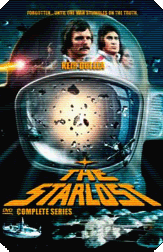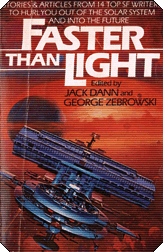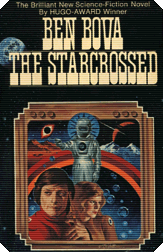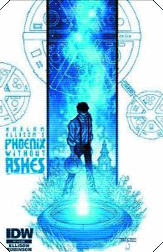Phoenix Without Ashes
By Edward Bryant & Harlan Ellison
Reviewed by Galen Strickland
So many different versions of this story, some very good, others not so much. We'll start with the first version that I read (and recently re-read), Edward Bryant's novel, first published in 1975. It is out of print as a conventional book but I'm sure you could find it in some used bookstore or from the many online sellers, or you could buy an e-book version currently available from ReAnimus Press. Even though I already had it in paperback I also bought the Kindle version from ReAnimus when they sent me an email concerning Bryant's current health issues, with a higher percentage commission promised to the author to help him through a difficult time. Harlan Ellison has graciously refused any commission in order for Ed to receive maximum benefit from the sale of this title along with several others being offered by ReAnimus.
Ellison contributes an interesting introduction explaining his original concept and the many headaches he encountered in bringing it to television, but he also explains that the novel itself was written solely by Bryant. Ellison is still credited because it is based on his script, thus it contains characters and situations created by him. Bryant did flesh out the story in several particulars, mainly the relationship between Devon and Rachel. A general synopsis of the story is in order, and while it is inevitable there will be some spoilers, especially when comparing the various versions, I'll try to keep them to a minimum.
It's set about 750 years in the future, on a generational starship called the Ark. As with several other stories of this type, the inhabitants of the various bio-spheres on the Ark are unaware of their situation. All they know is the small world constructed for them, approximately fifty miles in diameter, with the Ark itself about a thousand miles long. The Ark was constructed in space between Earth and the Moon and set out on its journey in 2285, following the discovery of Vastator (Latin for "Destroyer"), more than likely an asteroid or comet on a collision course with Earth. Hundreds of biospheres are clustered around the Ark's central axis, each containing a sample ethnic group, with all groups totalling about three million people, at least that was the case when the voyage began. Devon's home biosphere is known to its inhabitants as Cypress Corners, and it is an example of an Amish-like agrarian society, with strict rules of hard work and religious devotion. Devon is around twenty years old, an intelligent lad who is not content to accept the simple life laid out for him. In this novel he is plagued by recurring dreams of his deceased father, who seems to be trying to impart some knowledge to his son concerning possible realms beyond the small community that is his home.
Devon is in love with Rachel, and she with him, but the community elders have decreed that Rachel shall marry Garth. At the beginning of the novel Devon is in the midst of an exile from the community, due to his constant arguments with the elders and his adamant declaration that he and Rachel should be allowed to marry. Even when he returns to the place of worship he remains steadfast in his convictions, thus is condemned as a blasphemer and sentenced to death by stoning. Rachel is to be the one to cast the first stone. Fortunately, Devon is able to escape, and in his flight he stumbles upon an access portal to an area outside of the Cypress Corner biosphere. What he discovers there astounds him, and he is convinced he must return to his home and tell his people of the wonders beyond the dome they call "the world." The book was marketed as "A Novel of the Starlost," and if the televison series had been successful it is possible others would have followed. As it is, it encompasses only the story of the pilot episode.
 |
Ellison conceived of "The Starlost" as an ambitious project that would be an example of both good science fiction as well as a strong literary story, something beyond what television had previouly presented. That may have been a bit presumptious of him, for after all we had already seen strong stories presented in Rod Serling's Twilight Zone as well as Roddenberry's Star Trek . It is true that the majority of televised SF had been more simplistic and mainly directed at a younger audience, but not all of it should be looked down on by even the most devout SF reader. Ellison did intend that the series would adhere to realistic scientific principles, and for that endeavor he recruited fellow SF author Ben Bova as science advisor. Douglas Trumbull, visual effects designer for 2001: A Space Odyssey and director/effects supervisor of Silent Running, was to fulfill the same duties on this series. Both of these men quit in disgust shortly after production of the first episode was completed, followed closely by Ellison himself, who insisted his derogatory pseudonym of Cordwainer Bird be substituted as creator. Bova has been quoted as saying, "As the series progressed, it wasn't just despair I felt, but the numb acceptance that this was as good as it was going to get. When I saw the first screening I wanted to run away and hide."
As mentioned previously, Ellison went into specific detail about his quarrels with the other producers and writers in his introduction to Bryant's novel, and I'm sure if I looked long enough I could find several other rants concerning it. One of his major frustrations came when he learned the construction crew was busy designing the Ark's control room, which he anticipated would not be found until much later in the first season, if not a subsequent season if the series had lasted longer than 16 episodes. Ellison had intended the audience learn the true nature of the Ark at the same time as Devon, but not only was the control room built, it was part of the first scene of the pilot episode, which had been re-titled "Voyage of Discovery." Then the story flashes back to Devon in front of the elders. In the novel and script, as Devon flees from the angry mob of elders and other citizens, he accidentally discovers the portal that leads outside his dome, which had been concealed in a dense thicket of thorny brush in the hills outside of town. In the show that portal is in clear view of everyone, set into one wall of the dome. Not only is it clearly visible, a warning not to enter has been spray painted on it. Devon's dreams and his general curiosity of his surroundings are what had led to his questioning of the elders. With this portal clearly marked by the elders, one has to wonder why everyone had not been questioning that and many other things.
On top of all this, both Bova and Trumbull were apparently ignored. Nothing that happens makes much sense, the sets are of the most simplistic design imaginable, and the show was video taped instead of filmed as Ellison intended. The effects that Trumbull had designed were replaced with simplistic Chroma-key effects, a low-rent type of rear projection previously only used in news broadcasts to present a picture or video behind the newscaster. When Devon enters the tube which connects his dome to another section of the Ark he is in a zero gravity field. What should have been a slow, graceful float down the bounce tube ended up looking like an amateur stage production of Peter Pan, with Devon flailing wildly about. Granted a person not used to zero gravity might be a bit awkward, but in this case it is mainly comical, plus the distinct border around the actor and the video projection behind him looks as cheap as it sounds.
I don't think I saw any of this series in its original run, and although NBC was apparently somehow involved, I think it was produced for syndication rather than running on the network. I vaguely recall seeing an episode or two at some time in repeats, not sure when or where since I did my best to block the memory. I probably wouldn't have bothered renting the first disc of the series from Netflix recently if not to compare it to the novel and script, but I couldn't make it halfway through the second episode it was so bad. I sent that disc back right away and deleted the others from my queue. I see no reason why I'd ever watch any of it again. I'm providing a link to amazon only for others who might be interested and might not share my opinions about other things, but please note, I DO NOT RECOMMEND IT.
 |
Until recently I had been unaware that the script had ever been printed, figuring the production company had retained rights to it and would have refused due to their feud with the author. After researching the various iterations of the story I discovered that it did appear in the anthology Faster Than Light edited by Jack Dann and George Zebrowski, published in paperback by ACE in 1976. It does not include as many details as Bryant's novel, beginning with Devon standing before the community elders after his first exile. The majority of the the rest of the script is very similar to Bryant's rendition, but again, the novel fills in a few details toward the end, fleshing out the motivations of several characters, which may or may not have been intended by Ellison.
Ellison won the Writers Guild of America Award for Outstanding Dramatic Episode of 1973. This was for his original script, not the produced version, which was re-written by Norman Klenman. Along with character descriptions and dialog, Ellison included suggestions for the director and designers of how he felt the scenes and sets should look. The rules of the WGA say that all eligible scripts (totaling more that 2000 that year) are judged on the words alone, the author's name is removed. I'm not sure if that means other identifying comments are also removed, for in this case Ellison frequently suggested that Bova and/or Trumbull should be consulted for details. I would assume that some of the judges knew Ellison, and even if they didn't see his name on the script, they may have been aware of the pending production of the series, thus would know that Bova and Trumbull were attached as consultants. I'm not implying Ellison didn't deserve the award, and I have no idea what other scripts were in the running, it's just something that came to mind as I was reading.
I haven't read many scripts, either for films or television shows, so I'm not sure if the format used by Ellison is the current standard, or even if Dann and Zebrowski printed it exactly as Ellison presented it to them. One thing that I am sure is fairly standard is the structure of a TV episode that conforms to segments between commercial breaks. Most shows end those segments on a dramatic note, usually introducing a pivotal plot point or leaving the characters in some precarious predicament. Each of Ellison's acts ends that way, either with Devon's discovery of the portal, his first glimpse of the stars outside the Ark or when the elders pronounce his sentence. Precisely the type of scene that would have the viewer anxious to have the commercials over and the show to continue. It is a shame that Ellison lost control of the venture, but he grew weary of trying to re-write scripts from others who had no previous experience in science fiction, or in a few cases in television at all. The production was also moved from Hollywood to Canada to take advantage of some deal the production company had with certain investors, and it was mandated that the majority of the cast and crew had to be native Canadians. Today that would not pose any problems, since both Toronto and Vancouver have thriving film and television studios, as well as a vast pool of acting talent to draw on. But things were quite different in 1973, leaving Ellison to deal with rank amateurs.
 |
Ben Bova contributed the novel The Starcrossed in 1975, a satirical look at a futuristic production of a television show set on a starship. The plot of the show does differ from The Starlost, being an update of Romeo and Juliet and their rival families in the space freight business. Everything else about it is a very thinly-veiled account of his and Ellison's frustrations, including the move to Canada and having to work with amateur writers, who in the novel's case were picked from winners of a high school writing contest. The paperback copy I have features artwork of one of the characters that is unmistakably Ellison, and while that image might seem to imply the Ellison look-alike is an actor on the show, he is the writer instead. Another character, the inventor of a revolutionary new 3D filming system, seems to be an amalgamation of Bova and Trumbull, or if he was representative of Trumbull alone I'm not sure what other character Bova meant to be himself. As of yet I have not said anything about the actors on The Starlost, mainly because several of them have done some pretty good work in other productions and I didn't want to besmirch their reputation. Kier Dullea portrayed Devon. His performance was hampered by the scripts and the direction, so I find it hard to believe this novel's character who plays the lead in The Starcrossed is based on him. Bova himself has done much better work too, in fact I'd have to say this novel is the weakest of anything of his I've read, but it was still entertaining for what it is, especially as it compares to The Starlost. It seems obvious he took this satirical route to air out his frustrations of the whole ordeal, just as Ellison did in his introductory rant to Bryant's novel and his afterword to his script in Faster Than Light.
 |
Chronologically the last in this sequence is the graphic novel version of Phoenix Without Ashes, written by Ellison (with special thanks to Ed Bryant) and artwork by Alan Robinson, published in 2011. It is available in hardcover, paperback and for the Kindle Fire from amazon, and I assume for the Nook from Barnes & Noble. It conforms closely to Ellison's script, and while not included in the body of the book itself, there are some rough images at the end that come from extra scenes added by Bryant. I can understand why those scenes would not have been in a television episode in 1973, but it would have been nice if Ellison had incorporated them into this graphic version as a tribute to Bryant's work. If you've read any of my pieces on Ellison you know I regard him as one of my favorite authors, but in this particular case I have to choose Bryant's novel as the best venue for the story. His descriptions of the relationship between Devon and Rachel, and the dreams that Devon experiences, help our understanding of how and why Devon makes the decisions he does. There is also a revelation about his father and of one of the elders (which I won't reveal) that helps strengthen his resolve. I would like to have seen other adventures written by Bryant, and of course would love for the series to have been even half as good as Ellison intended or even a quarter as good as Ed's novel.
Would you like to contribute an article on your favorite SF, Fantasy or Horror book, movie, TV show or comic?
Just email me.
We would appreciate your support for this site with your purchases from
Amazon.com and ReAnimusPress.